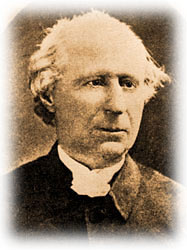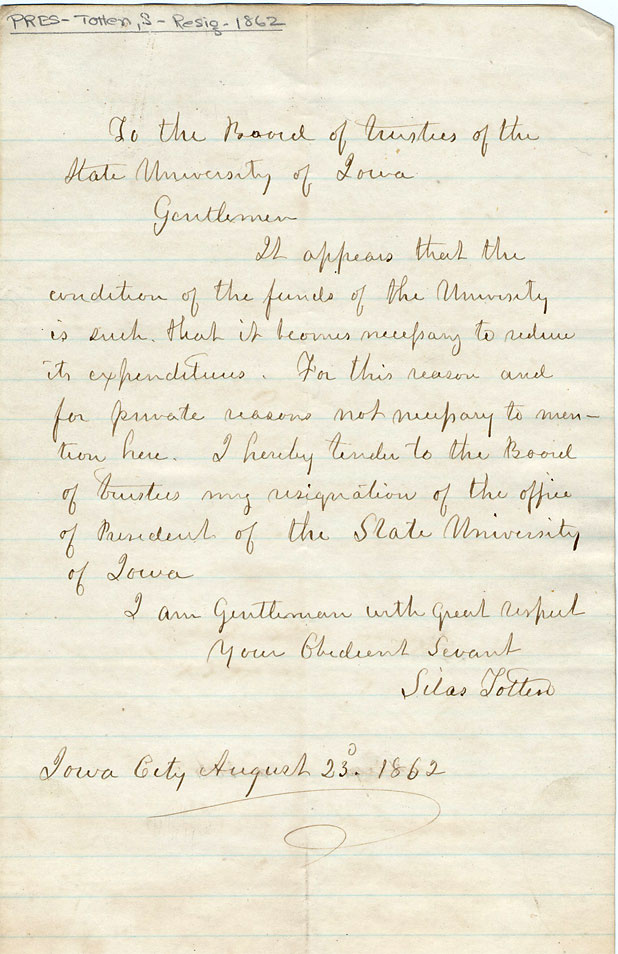(Editor's note: The Old Gold series provides a look at University of Iowa history and tradition through images housed in University Archives, Department of Special Collections.)
Deeply held convictions divided the nation during the Civil War, not only on the battlefield and along state borders, but also among families and communities throughout the land. Iowa was no exception, where even this bastion of pro-Union sentiment was home for some who sympathized with the Confederacy.

This division reached the president of the State University of Iowa, Silas Totten. It perhaps even caused him to resign his post 150 years ago, in August 1862.
At the time of the war’s outbreak more than a year before, the State University of Iowa was a struggling institution. The university had been open for classes only intermittently for a few years, and the state’s treasury was soon depleted because of the hostilities. Totten, only the second president to lead the institution, faced difficult circumstances. Salaries were cut, no new positions were created, and building construction was delayed indefinitely.
Against this backdrop of uncertainty was mounting sectionalism in response to the war. An account by Theodore Wanerus, a 1910 SUI alumnus, was published in the January 1912 issue of The Iowa Alumnus:
“In those days Iowa City and vicinity had a large group of southern sympathizers. … Street demonstrations which students joined were of frequent occurrence. The so-called ‘copperhead,’ or Southern element, wore badges to show their sympathy for the South.
“President Totten and his family were unfortunate in becoming involved in this sectional feeling. Although of quiet disposition, President Totten was a man of firm convictions and it soon became known that he and his family were in sympathy with the South. He tried to force his beliefs upon no one, but the mere fact that he had such convictions brought the distrust and ill-feeling of many people against him. The unfortunate situation was further aggravated when Richard Totten, his son, who was a student in the University, took part in one of the street demonstrations and from a raised platform, burst forth in fiery denunciation against the North. For this he was pursued by an angry crowd from which he escaped, never to return to Iowa City. This incident and the general state of public opinion combined with a lack of university funds and the consequent reduction of salaries no doubt had much to do with the resignation of Dr. Totten on August 19, 1862.”
Totten’s letter, dated Aug. 23, 1862, makes no mention of the incident, citing only “private reasons not necessary to mention here.” However, Wanerus and William Haddock, who served as secretary to the trustees from 1865 to 1902, speculate in separate essays that the incident hastened President Totten’s departure. In 1864, he moved to Decatur, Ill., and, later, to Lexington, Ky, where he taught until his death in 1873.

The Civil War reached far and wide 150 years ago, including the leadership of Iowa’s fledgling university. For more about the State University of Iowa’s role in the Civil War, see the March 2011 Old Gold at spectator.uiowa.edu/2011/march/oldgold.html.
Note: Old Gold often uses the university’s original and official name—The State University of Iowa (SUI)—in historical contexts. See this December 2010 article for more about the university’s names.